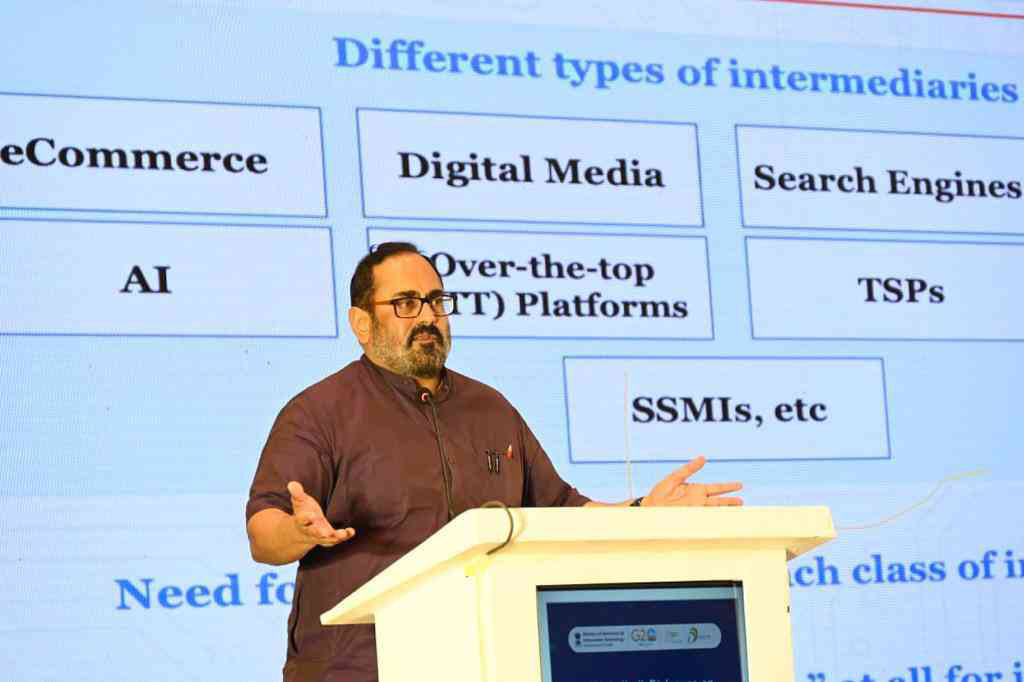
The new draft legislation “The Digital India Bill’ will enable the government to make big technology companies pay Indian newspapers and digital news publishers for the content that they use on different social media platforms and garner huge profits. A report by Tehelka Bureau
The new draft legislation ‘The Digital India Bill’ that is likely to be released for public consultations this month, will address the issue of content creation and its monetisation. The government wants to make big technology companies including Google, Meta -Facebook, Instagram and WhatsApp, Twitter, Microsoft, Apple and Amazon pay Indian newspapers and digital news publishers’ a share of revenue for using their original content.
Rajeev Chandrasekhar, Union Minister of State for Skill Development & Entrepreneurship and Electronics & IT, has begun the process of consultations with stakeholders on soon-to-be introduced Digital India Bill — a future ready legislation that aims to catalyse India’s ambition of being in the leading pack of nations that would shape the future technologies. The proposed Bill aims to help India achieve the goal of becoming a trillion-dollar digital economy and be a significant trusted player in the Global Value Chains for digital products, devices, platforms, solutions and help develop India as a globally competitive innovation and entrepreneurial ecosystem while at the same time protecting the rights of its citizens.
The Digital News Publishers Association has long sought its share in the revenue that social media players like Google and Facebook generate by funnelling their content. Social media has emerged as an essential platform for news distribution. This will provide funds to Indian publishing companies to invest in quality journalism and credible content. The new draft legislation seeks to make companies pay news publishers for the content that they use on different social media platforms and garner huge profits. The draft Digital India Bill, is likely to be released for public consultations this month and content creation and the issue of its monetisation are going to be raised by stakeholders according to many publishing houses.
In many countries, the aggregators share revenue with the creators. For instance, in Australia, Facebook and Google shared about $140 million revenue with the Australian news industry. Australia, France and Spain, have already passed legislation that requires tech companies, including Google, to adequately compensate content producers for using their content and search results. However, India currently has no law to make Google, Facebook and other social media platforms pay for news they host on their platforms.
Ironically, in recent times, revenues of most media houses have come down while aggregators have profited without even creating any original content. There is no denying that both the tech giants and publishers need each other. Social media has emerged as an essential platform for news distribution. Close to 85 crore people in India are connected to the Internet. By 2025, the number is expected to grow to 120 crore.
The move is being mooted through regulatory interventions, which may happen as part of revisions to the existing IT laws. According to Rajeev Chandrasekhar “The market power on digital advertising that is currently being exercised by the Big Tech majors, which places Indian media companies at a position of disadvantage, is an issue that is seriously being examined in the context of new legislations and rules.” The government feels that the growth of social media and tech platforms has resulted in “consolidating market power” only with a handful of Big Tech companies, leaving many of the original content creators at a disadvantage. “The news publishers have no negotiating leverage at all, and this needs to be tackled legislatively. This is an important issue for us,” said Chandrasekhar.
The matter had been raised by the Digital News Publishers Association (DNPA) and the Indian Newspaper Society (INS) who have approached fair play watchdog Competition Commission of India (CCI) against Google, accusing the company of abuse of dominant position in news aggregation to impose unfair conditions on news publishers.












